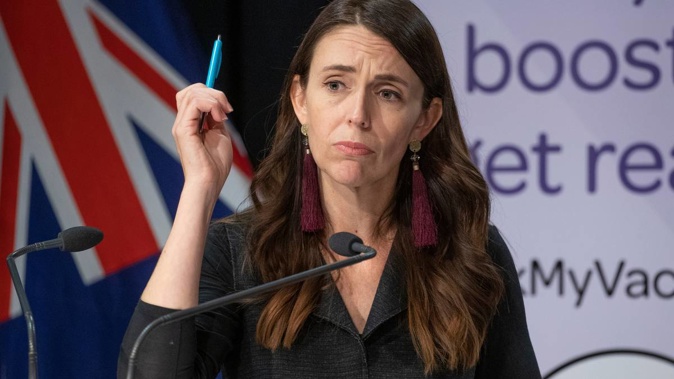
Cabinet is meeting today to consider a bespoke Russian sanctions bill drafted specifically for the conflict in Ukraine.
Prime Minister Jacinda Ardern said the Government wanted to make sure it had the ability to apply targeted sanctions to entities and individuals including oligarchs.
"We'll be looking at the ability, then, for New Zealand to add additional sanctions and also making sure that we can target those who may have an influence on the Russian regime and the ability to continue to put pressure on Russia, overall, to ensure that we're doing all we can," she told TVNZ's Breakfast.
The bill would also enable the Government to stop people from putting investments or assets into New Zealand as a way of escaping other restrictions in other areas, take steps against movement around maritime and airspace and impose sanctions on those who may be supporting or are involved in the decision-making of the invasion.
Speaking to RNZ, Ardern said it would be an extension of the sanctions already put in place.
"You'd recall that we moved on things like travel bans, we also moved on export controls essentially limiting their ability to export anything that may have dual-use technology for the military."
There have been multiple calls on the Government to consider the draft autonomous sanctions.
"It would not have necessarily allowed us to target oligarchs and we want to make sure we can do that," Ardern said.
More detail on the bill is expected to be shared later today following the meeting.
The Government has been questioned on whether it is doing enough to help Ukraine and whether its already-imposed sanctions could be more heavy-handed.
To this, Ardern said that everything done so far is in line with what many other countries have done.
"But we do want to do more," she said.
She acknowledged that New Zealand moved faster than many other countries when it came to humanitarian efforts and specifically helping people on the ground.
The Government would also be looking to see whether extra support is needed for surrounding countries such as Poland that are aiding Ukrainian refugees as they flee.
Rising costs not a 'crisis'
Meanwhile, Ardern told AM that since Labour had come into Government, incomes had been lifting more than the cost of living.
She said New Zealand was experiencing high inflation at the moment, but it was not projected to be in place for a long time and should get better over the course of this year.
Minimum wage and family tax credits had been increased in response to the high inflation, she said.
She wouldn't describe the rising costs as a crisis, but said "there was an impact people were feeling, undeniably".
On the high petrol costs, she said it was due to the impact of Covid and the conflict in Ukraine so they may not necessarily come down.
The increase at the pump had been significant and had not come from the increase in excise.
"The increases that people have seen are far outstripped. Even if people were to remove excise increases, people would have seen still that increase at the pump because it has not predominantly come out of that space."
On National's suggestion that tax cuts were the way to go, Ardern said they had to talk about managing the economy and running the country as a whole.
She said the opposition had proposed to cut billions of dollars out of its revenue as a government, which would limit its ability to spend on things like health and education.
"There are two choices - they are either going to fund these billions of dollars' worth of cuts by, for instance, cutting health or education or they are going to increase debt. They didn't tell us yesterday - how."
Ardern totally rejected suggestions the Government had been engaged in wasteful spending and said the majority of the spending increase from the Government had funded the wage subsidy and business support.
New Zealand had some of the lowest unemployment in the OECD and had kept people in work. It also had some of the lowest debt in the OECD. There had also been good solid growth relative to other countries and exporters were seeing record exports right now, she said.
"What I don't agree with is a proposal to cut billions of dollars, as the Opposition have said, from the ability of government to invest in health and in education. Now is not the time to be making such a move."
Take your Radio, Podcasts and Music with you









